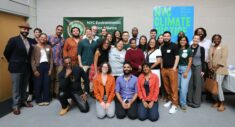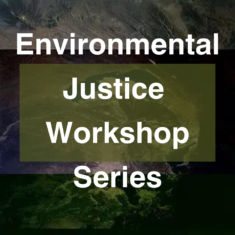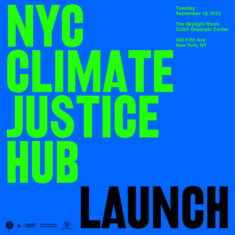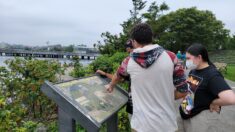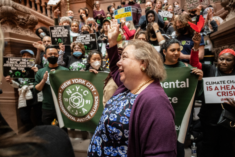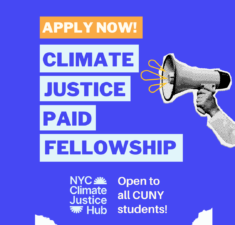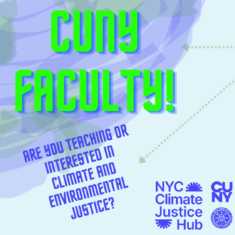About this fellowship and academy week
There is no climate justice fight without joy
Our brand new Climate Justice Hub Fellowship and Academy Program just kicked off! In May, out of nearly 200 applicants, the NYC Climate Justice Hub selected 20 undergraduate and graduate students across CUNY colleges to form the inaugural cohort of Climate Justice Fellows! In addition, five students were chosen to work directly with our community partners as interns.
The fellows are Jenna Salem, Alina Nodrat, Janggo Mahmud, Alessandra Olivieri, Leuna Sarah, Valeria Cruz (Hunter College), Carina Alessandro, Vladimir Prikhodkho (Brooklyn College), Louie Lauren Apostol, Julie Liu, Karina Torres, Arnab Gomes (City College), Adnaan Elahi, Luke Rodriguez, Taha Karim (Baruch College), Nedelyn Helena Diaz (Hostos College), Hennessey Garcia (Medgar Evers College), Anakaren Santana (York College), Michelle Cruz Tovar (Lehman College), Julia Sandke (Queens College).
The interns are Juan Carlos García, Alex Viteri Arturo, William Shelton (Graduate Center), India Brown (School of Professional Studies), and Angela Zhou (City College), and they will work directly with the member organizations.
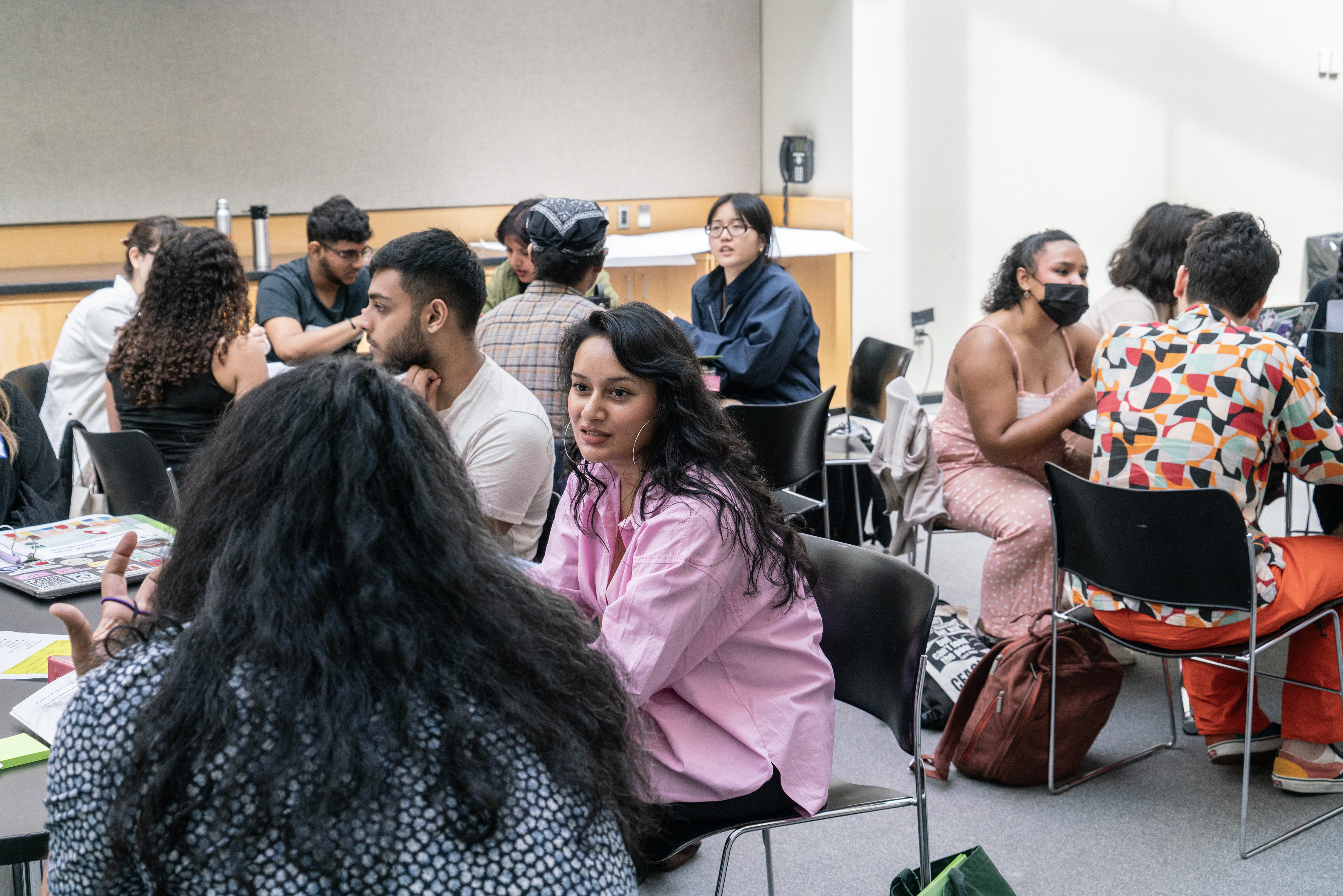
The NYC Climate Justice Hub is a partnership between the New York City Environmental Justice Alliance (NYC-EJA) and the City University of New York (CUNY) to advance frontline solutions in the Black and Brown neighborhoods NYC-EJA members serve. The Climate Justice Fellowship Program provides an emerging generation of climate justice leaders with the skills, networks, and opportunities to engage in just transitions and advance climate solutions through study, service-learning, professional development, campaign organizing, and engagement with participatory policy-making.
The program offers a $10,000 stipend and connects fellows with their CUNY peers, key leaders in the climate field, and community-based organizations in their own neighborhoods to build a cohort of environmental justice-minded ambassadors across NYC.
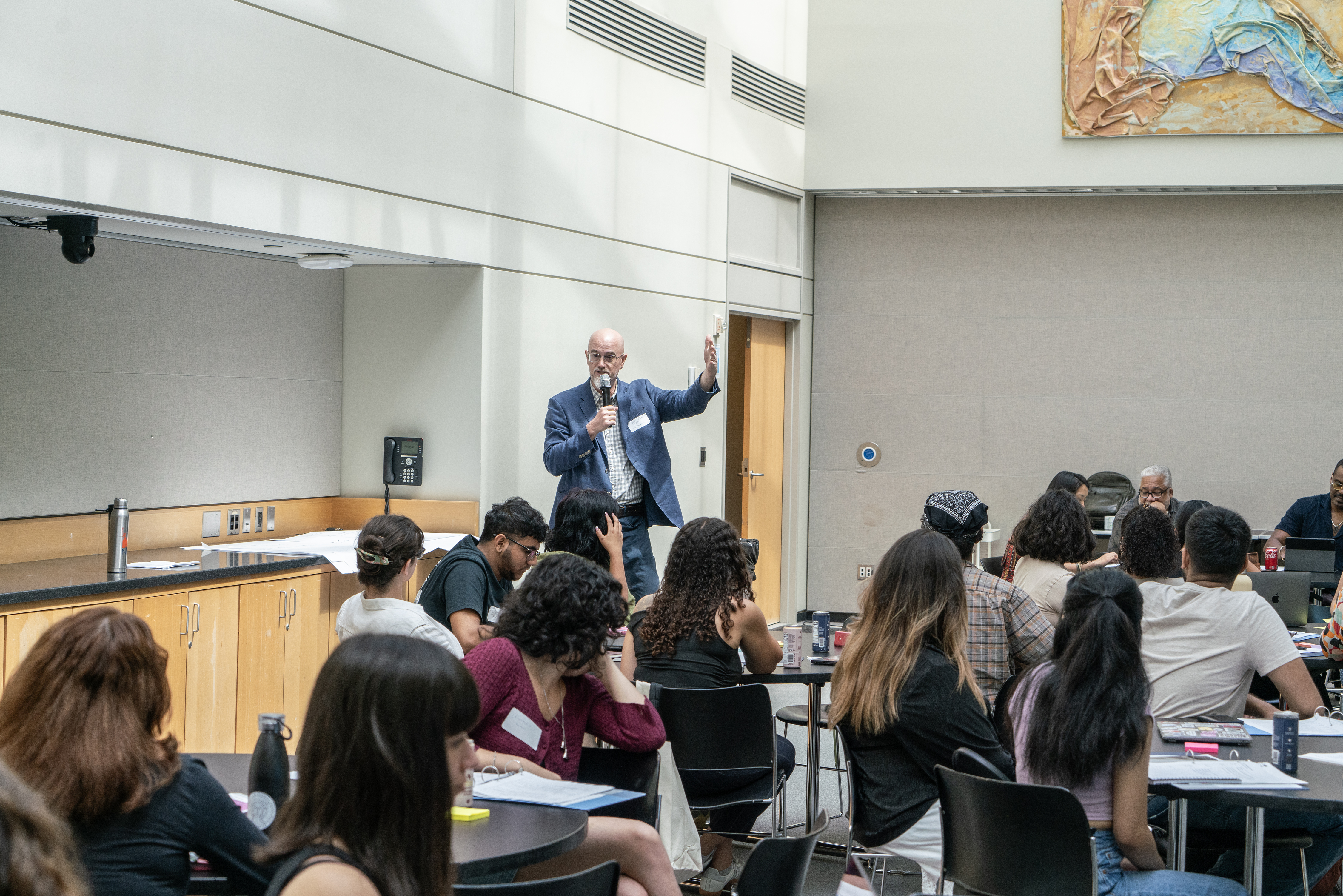
The fellowship program launched with an intensive four-day Academy on June 17th, 18th, 20th, and 21st. Below is a recap of what fellows learned during the Academy and how they engaged with other CUNY students, CUNY faculty, and NYC-EJA's grassroots organizations to explore the climate justice history and landscape in NYC, the colonial dynamics underlying environmental issues, and various other environmental justice themes, including community ownership of renewable energy, urban heat mitigation, air quality, and safe housing.
DAY 1
The first activity of the week was an interactive presentation led by the Hub’s Classes & Curriculum Specialist, Dinorah Hudson. Fellows shared their “aha” moment in regard to understanding climate justice and why that moment was important to them.
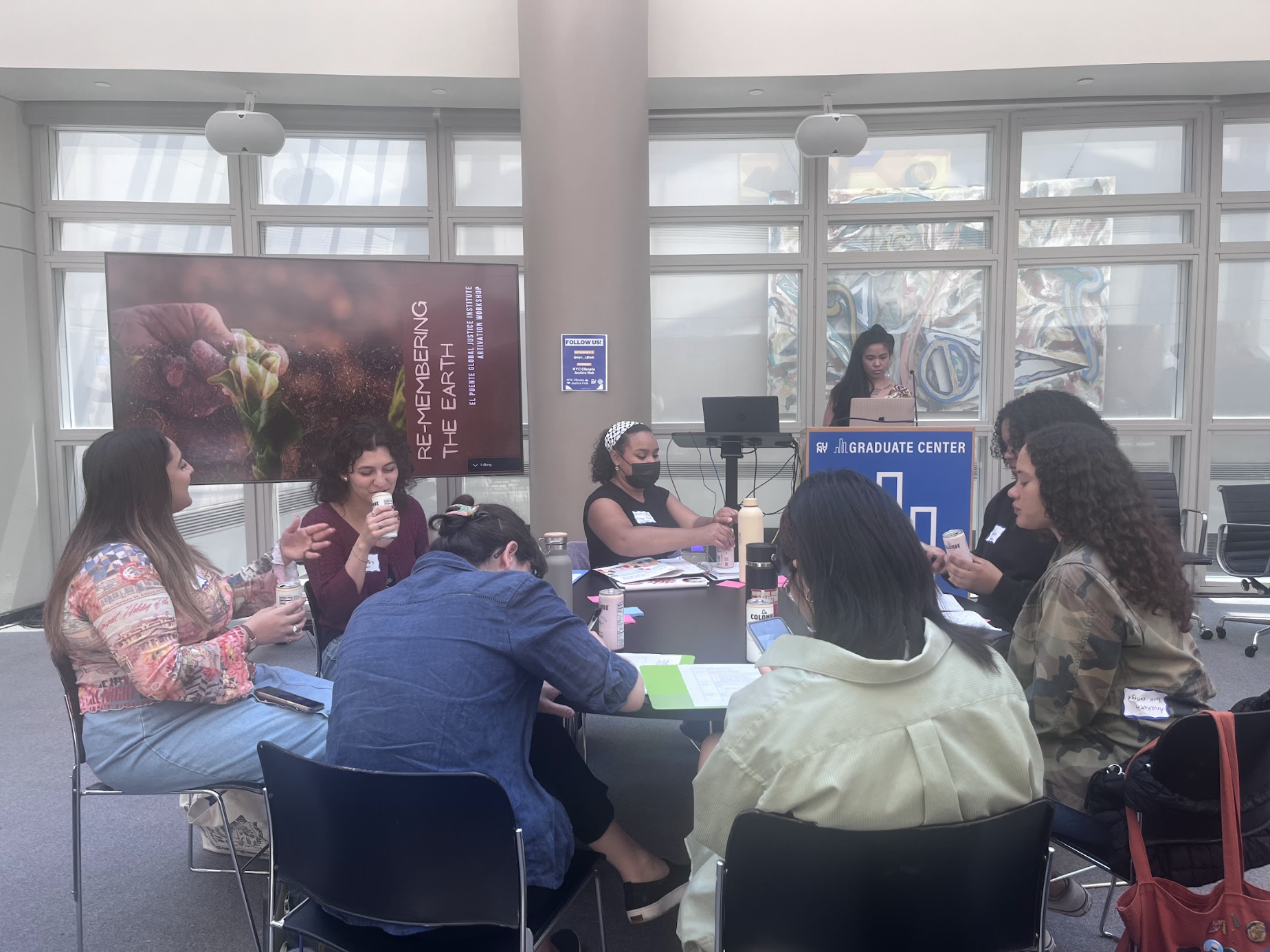
This discussion was followed by a workshop titled “Re-membering the Earth,” facilitated by Jana Lynne Umipig, a resident artist at El Puente of Hawaiian origin. She asked fellows to remember and share a moment in which they had felt connected to the land and then listen attentively to each other’s stories about those connections. This interactive session inspired and prepared all the students for the challenging content of the Academy panels that would follow.
Panel 1: “About the NYC Climate Justice Hub”
The first panel featured Hub Co-directors Eddie Bautista, Eunice Ko, Mike Menser, and Kendra Sullivan; Hub Coordinators Alan Minor and Jazmyn Blackburn; Classes & Curriculum Lead Kobie Colemon; and Fellowship Program Lead Maithreyi Rajeshkumar.
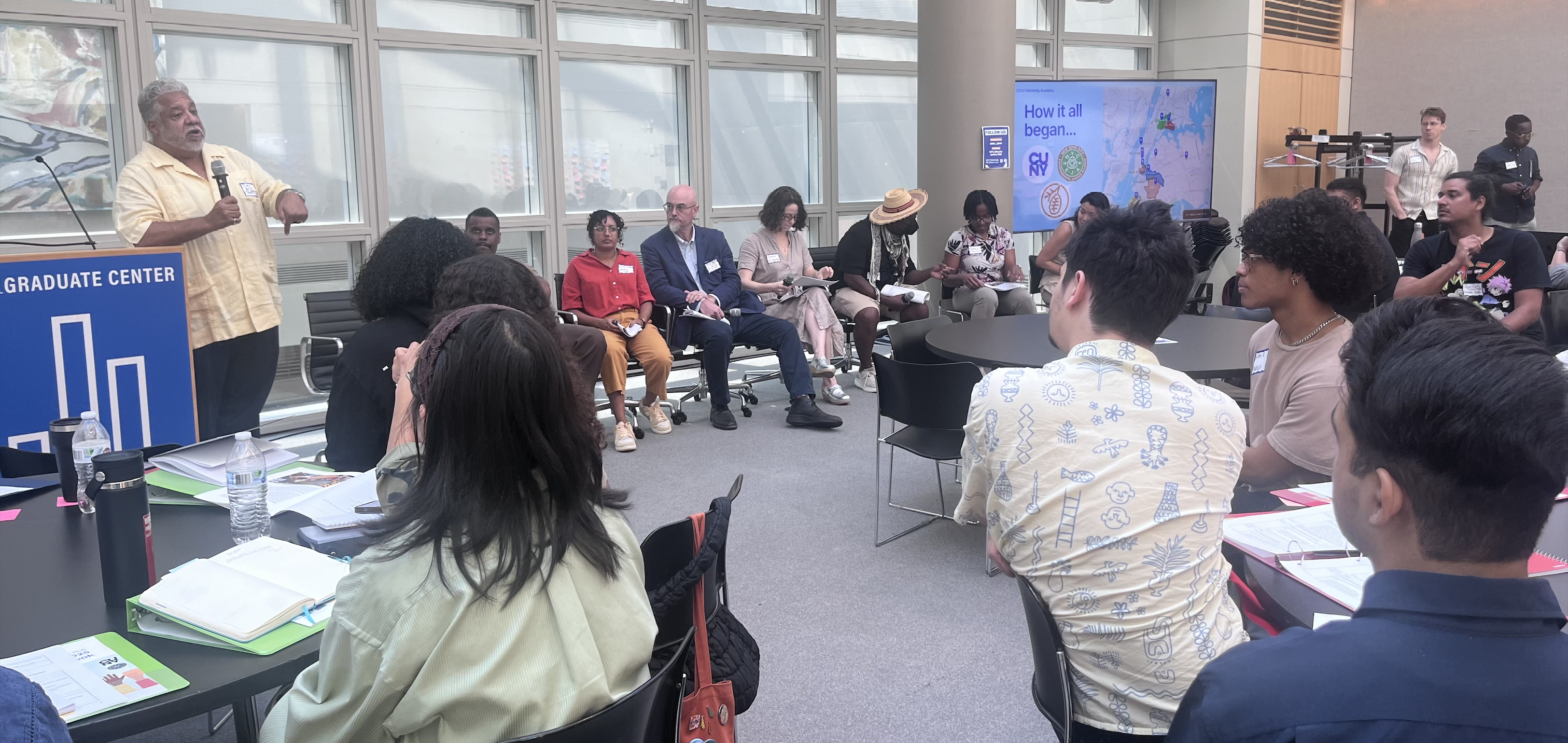
The discussion was framed by a video about Hurricane Sandy in 2012 and its disproportionate impact on communities of color, then and now, more than ten years later.
The panelists explained how the alliance between NYC-EJA and CUNY began, the concepts and frames that guide the Hub’s work, the work of the member organizations that serve communities of color, and the accomplishments of the Hub’s three main initiatives: Research Teams, Classes & Curriculum, and the Climate Justice Hub Fellowship & Academy Program.
Panel 2: “Histories of Climate Justice & Current Contexts”
The second panel, “Histories of Climate Justice & Current Contexts,” gathered Eddie Bautista, NY Renews’ Executive Director Stephan Edel, and Hub Advisory Board Member and Associate Professor at John Jay College (CUNY) Denise Thompson.
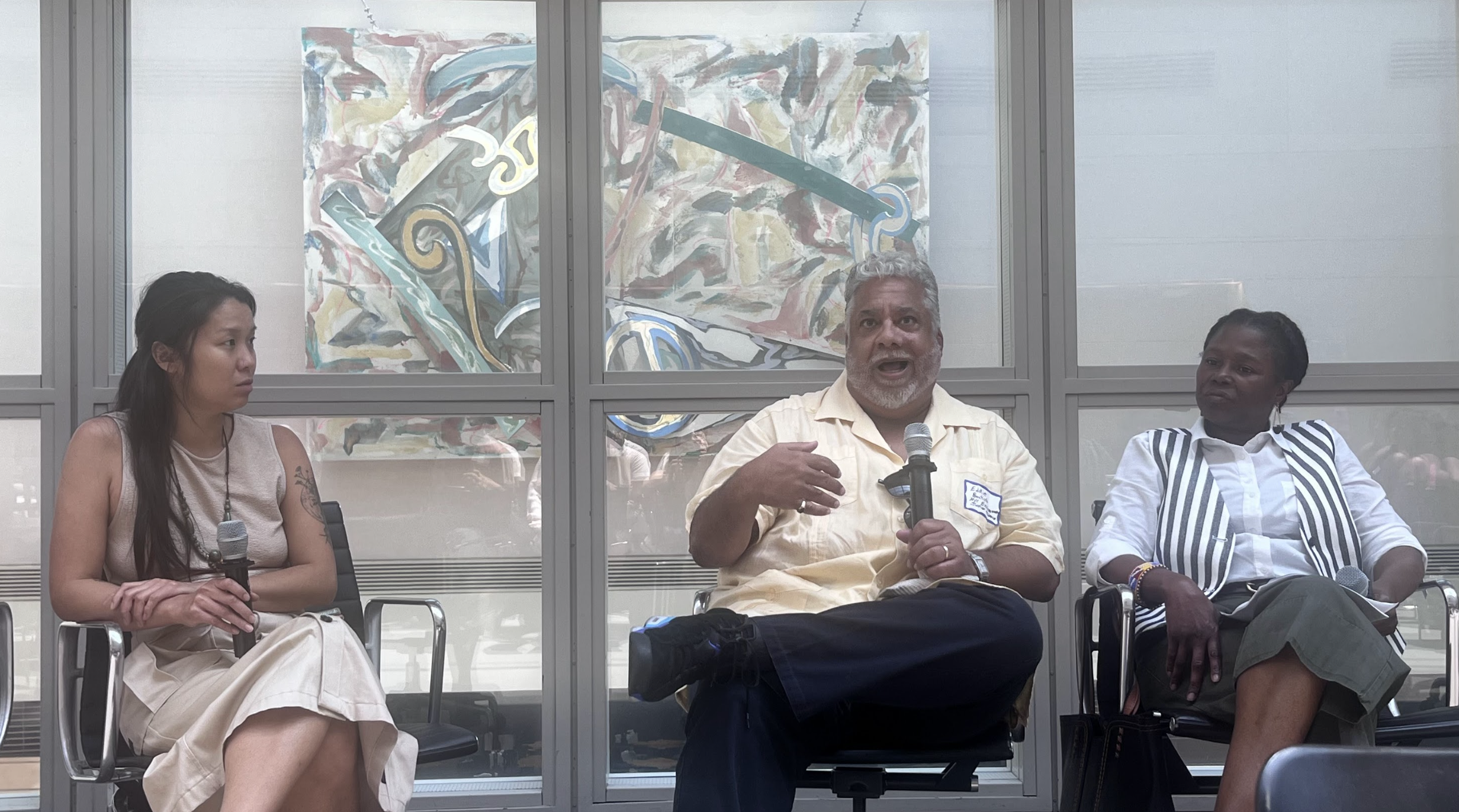
They discussed the racial and economic disparities they had experienced growing up and the adverse effects of extraction, industrialization, and globalization locally in NYC as well as internationally. They recalled the beginning of environmental fights in NYC, led by the Black Panthers and the Young Lords in the ‘60s, through to the Climate Leadership and Community Protection Act (CLCPA) passed in 2019. This legislation is the most ambitious climate act in the United States.
Edel remarked that, nowadays, campaigns need not just address climate change but also housing and community development. Thompson said that, from now on, if fellows want a better future, they need to envision what that future will look like.
One student asked the panelists how to fight the sense of dread that looms in some environmental activists or climate-conscious people. Eddie Baustita said that radical joy is a form of resilience and that a huge amount of energy comes from joy. He quoted the famous expression attributed to political activist Emma Goldman (although it doesn’t appear like that in her writings), “If I can’t dance, I don’t want to be part of your revolution,” and encouraged fellows to join groups where they can find joy.
Panel 3: Critical Elements of Power Mapping
The following session centered on the critical elements of power mapping for organizing and campaigning at the community, city, and state levels, with Xaver Kandler, NY Renews’ Campaigns Director; Annel Hernandez, NYC Council’s Director of Climate and Environmental Policy; and Naomi Schiller, Associate Professor of Anthropology at Brooklyn College.
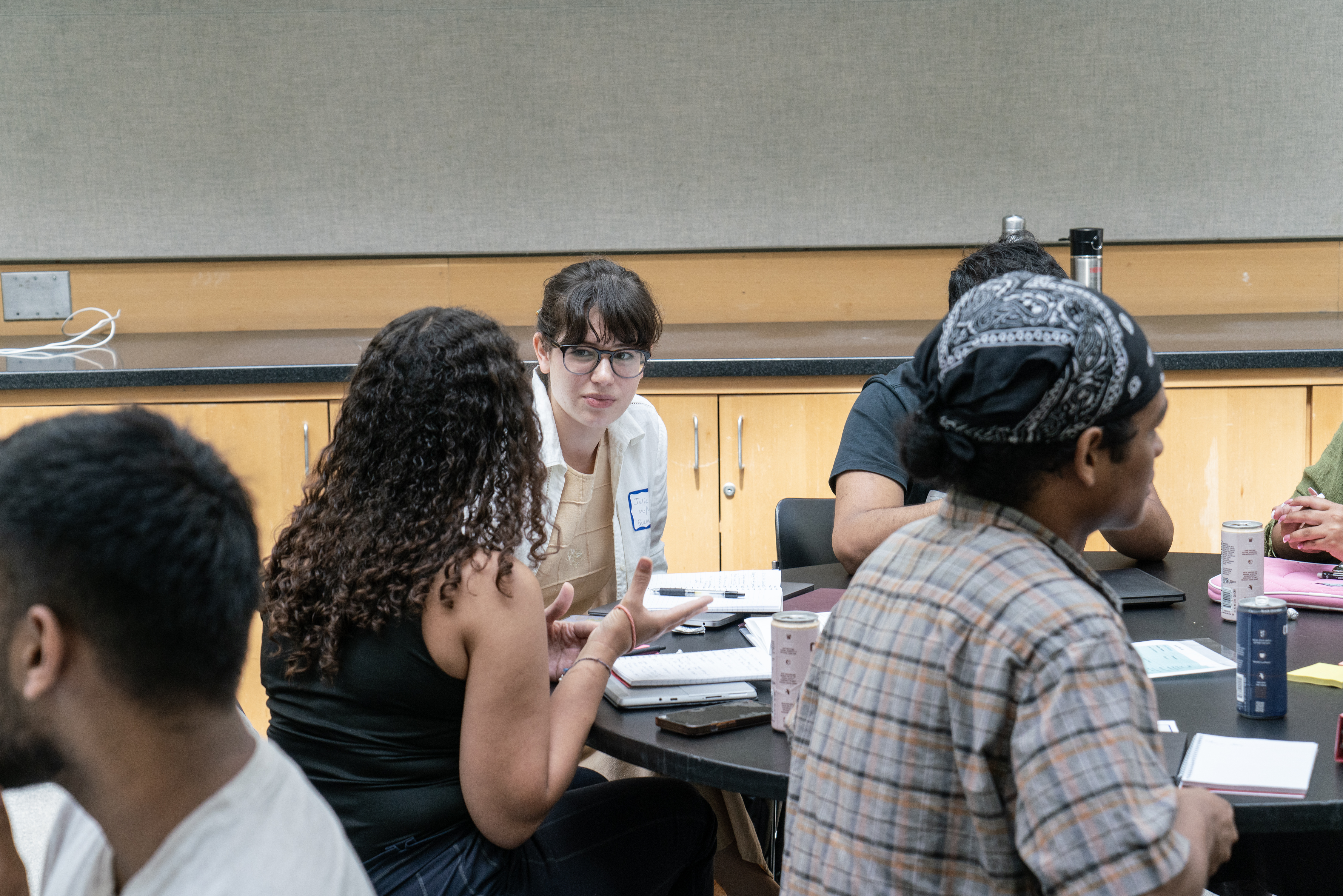
Schiller defined power as the ability to get someone to do what you want them to do. She listed six types of power: ideological, political, material or economic; the power of violence; the power from below or people working together; and the power of disruption.
Kandler said that if we want to achieve legislation changes, it is essential to know how the government works, who the officials are, what their functions are at the city and state levels, and who are the influences around them, like advisors, donors, and political allies. Hernandez added that passing a law is more than just approving it; it’s socializing an idea and a cultural and political shift.
DAY TWO
Fellows started the day with a panel on NYC-EJA member organizations, with Asenhat Gomez, El Puente’s Deputy Director of Programs; Barbara Alicea, The Point CDC’s Executive Managing Director; and Elizabeth Yeampierre, UPROSE’s Executive Director.
Alicea shared with students about The Point’s fights for access to healthy fresh food for their community in Hunts Point (South Bronx) and reducing pollution from trucks circling the neighborhood. Gomez also discussed El Puente’s efforts to improve air quality in Williamsburg, Brooklyn.
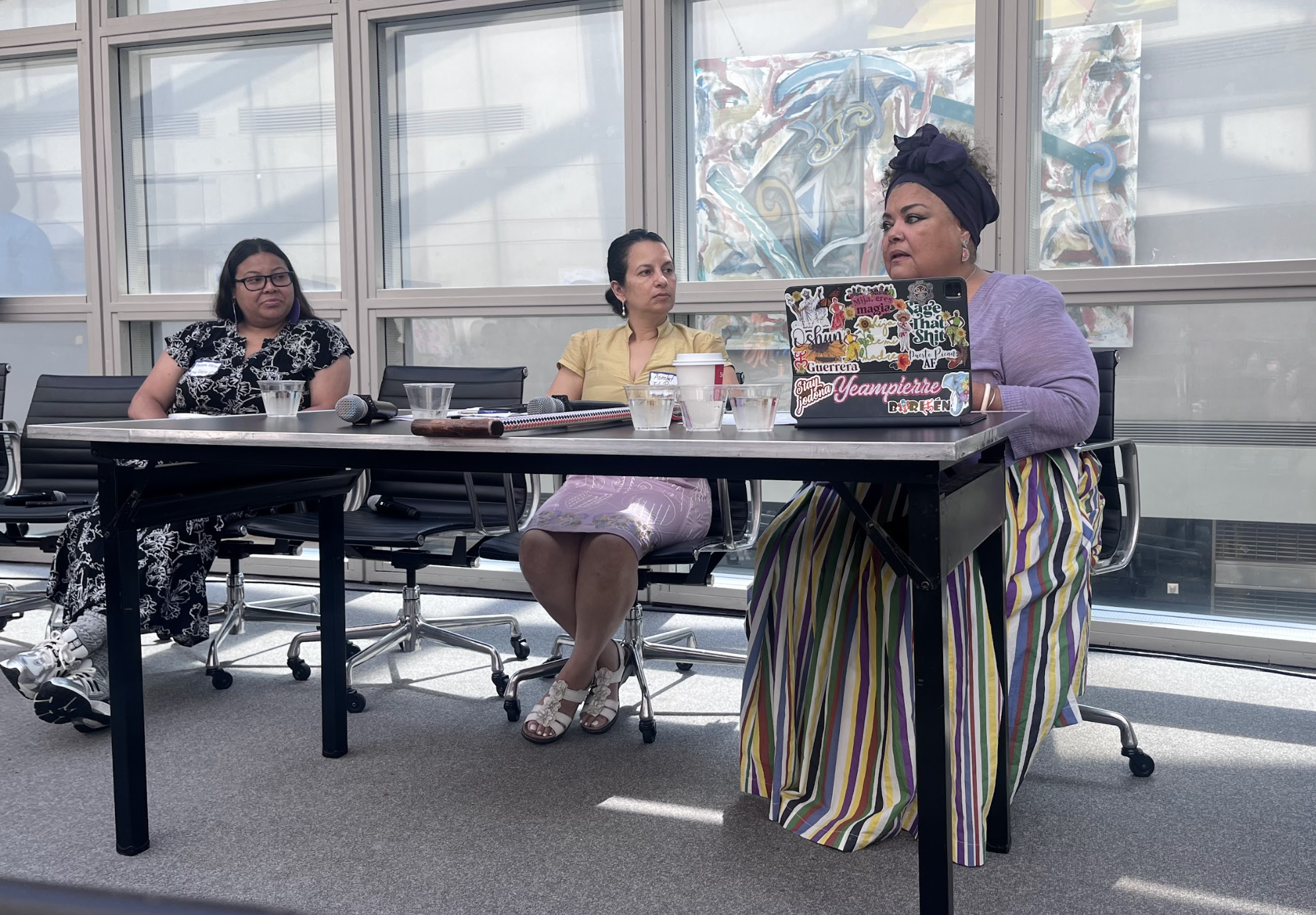
Yeampierre told attendees how UPROSE doubled the public open space in Sunset Park (Brooklyn), reduced emissions in the area, and helped stop the expansion of the Industry City commercial complex. She reminded students that climate justice fights are more than a full-time job as injustice doesn't work only from 9 to 5.
Gomez added that the culture of extraction in our nation is not natural. Our ancestors were stewards of the land and took care of it to ensure it could provide for everyone. According to Yeampierre, climate change is the “angry child” of this extraction culture and also of enslavement and colonialism.
Panel 4: Introducing NYC-EJA Campaigns
Once feeling inspired by the organizations' missions, fellows participated in a panel about NYC-EJA’s active campaigns, with Eunice Ko, Hub’s Co-Director; Daniel Chu, Senior Energy Planner; Kevin Garcia, Senior Transportation Planner; Shravanthi Kanekal, Senior Resiliency Planner; and Celeste Perez, State Climate Policy Manager.
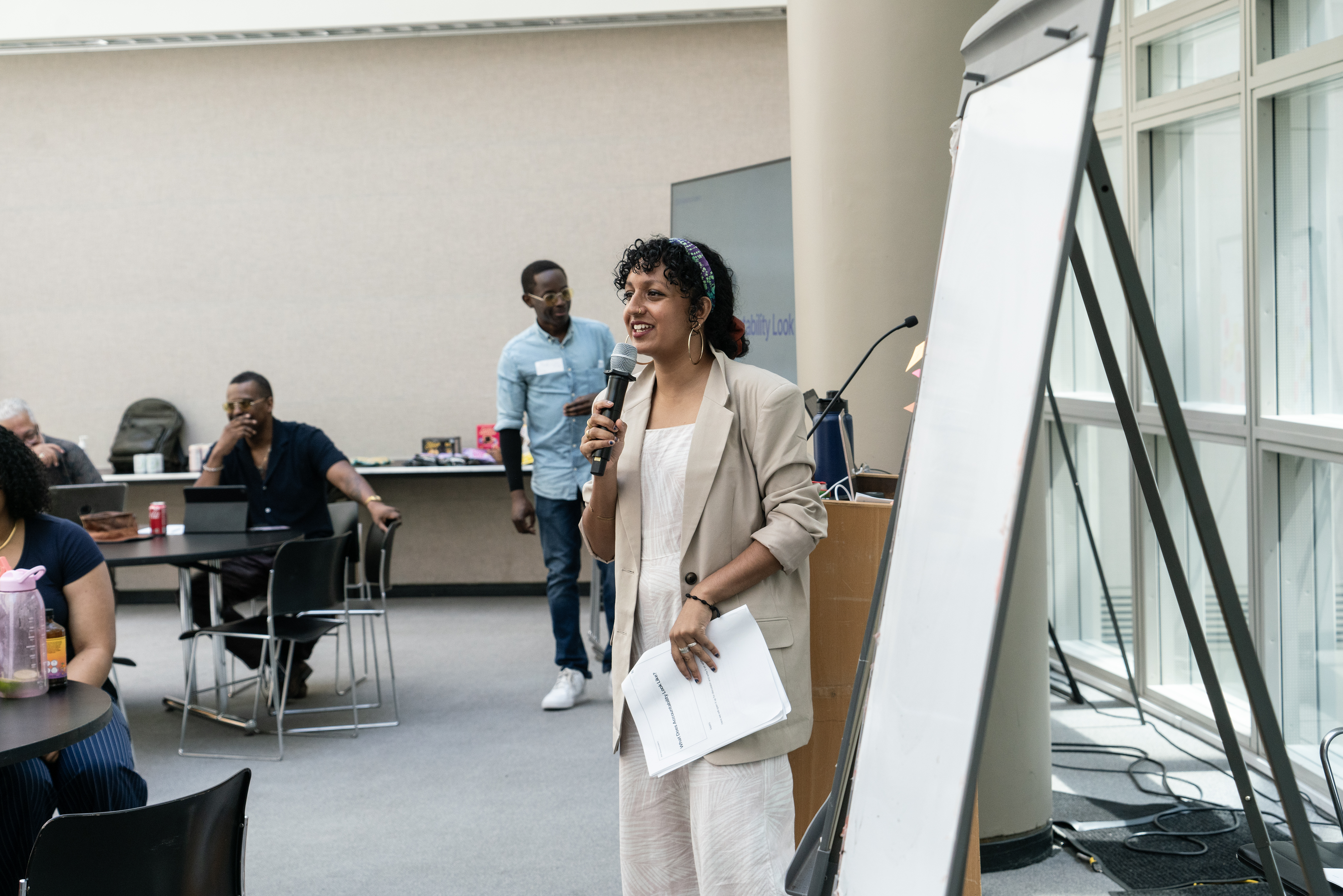
They all detailed NYC-EJA’s campaigns and coalitions on different topics: transportation electrification, congestion pricing, reducing GHG emissions from NYC buildings and vehicles, community heat and air quality monitoring, waste management, extreme heat resiliency, coastal resiliency to storm surges, retirement and transition of peaker power plants, and the expansion of green areas. Kanekal said, for example, that the city should have an extreme heating plan and make cooling more accessible for everyone. García noted that all these campaigns include racial justice.
Panel 5: Community Organizing and Planning
The following panel, “Community Organizing and Planning,” explored what the Jemez Principles mean in practice, what community organizing looks like, and practical ideas on how universities can work with organizers. The panelists were Eddie Bautista, Hub’s Co-Director; Juan Camilo Osorio Botero, Pratt Institute’s Associate Professor; and Mike Menser, Hub’s Co-Director.
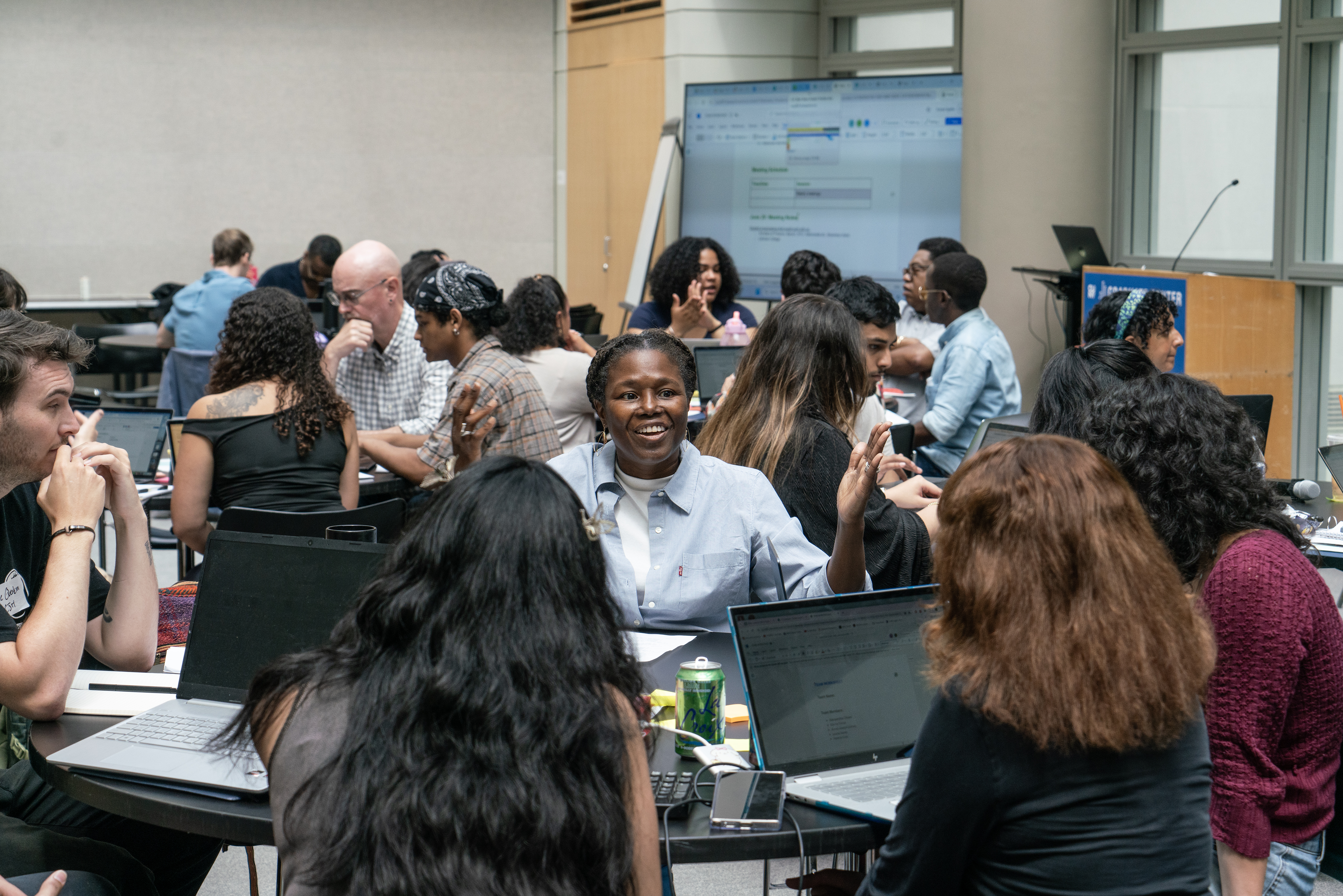
Bautista talked about the stages of community organizing: identifying the people interested in a problem or a cause, developing a process or strategy, and using a platform to advance the community agenda. Osorio talked about the dimensions of justice: distributive, cultural, procedural, corrective, and social. Menser discussed past examples of community-university partnerships, both good and bad, and named specific examples of community-driven projects that CUNY has supported around Jamaica Bay and with participatory budgeting.
Panel 6: Student Power: Radical Histories of CUNY
Later in the afternoon, fellows participated in a session on the history of radical student organizing and activism at CUNY and the role of public education. The speakers were Ujju Aggarwal, CUNY alumni and Assistant Professor at The New School; Conor Tomás Reed, CUNY alumni and Program Director of the Shape of Cities to Come Institute; and Roxanne Shirazi, CUNY Digital History Archive’s Project Director.
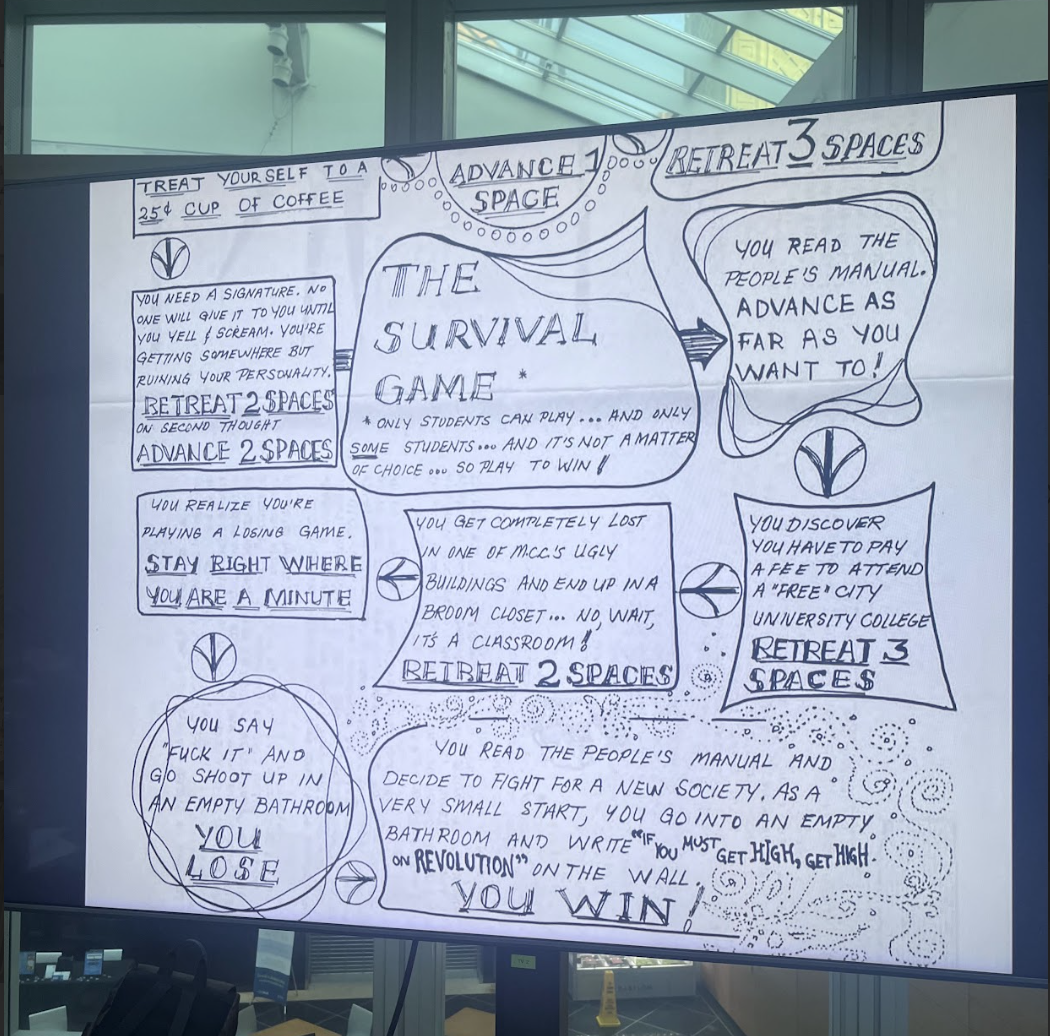
Reed explained how many CUNY activists were inspired by international fights for justice and peace and how they organized using artistic outlets, such as hip-hop. Aggarwal mentioned that one pending question is how to get faculty involved in student fights. In general, attendees learned about the tradition of student-led transformation at City College, Baruch College, and other CUNY campuses, and how social activism and climate activism intersect.
DAY 3
After a break for the Juneteenth holiday, the third day of the Academy started with a Meditation for Climate Activists and the Climate-Conscious led by trans* poet Anaïs Duplan. It continued with a session on the fellows' and interns' duties and responsibilities throughout the year-long Fellowship. Mike Menser, Hub’s Co-Director, provided several activism resources and centers across CUNY to help support them in their work.
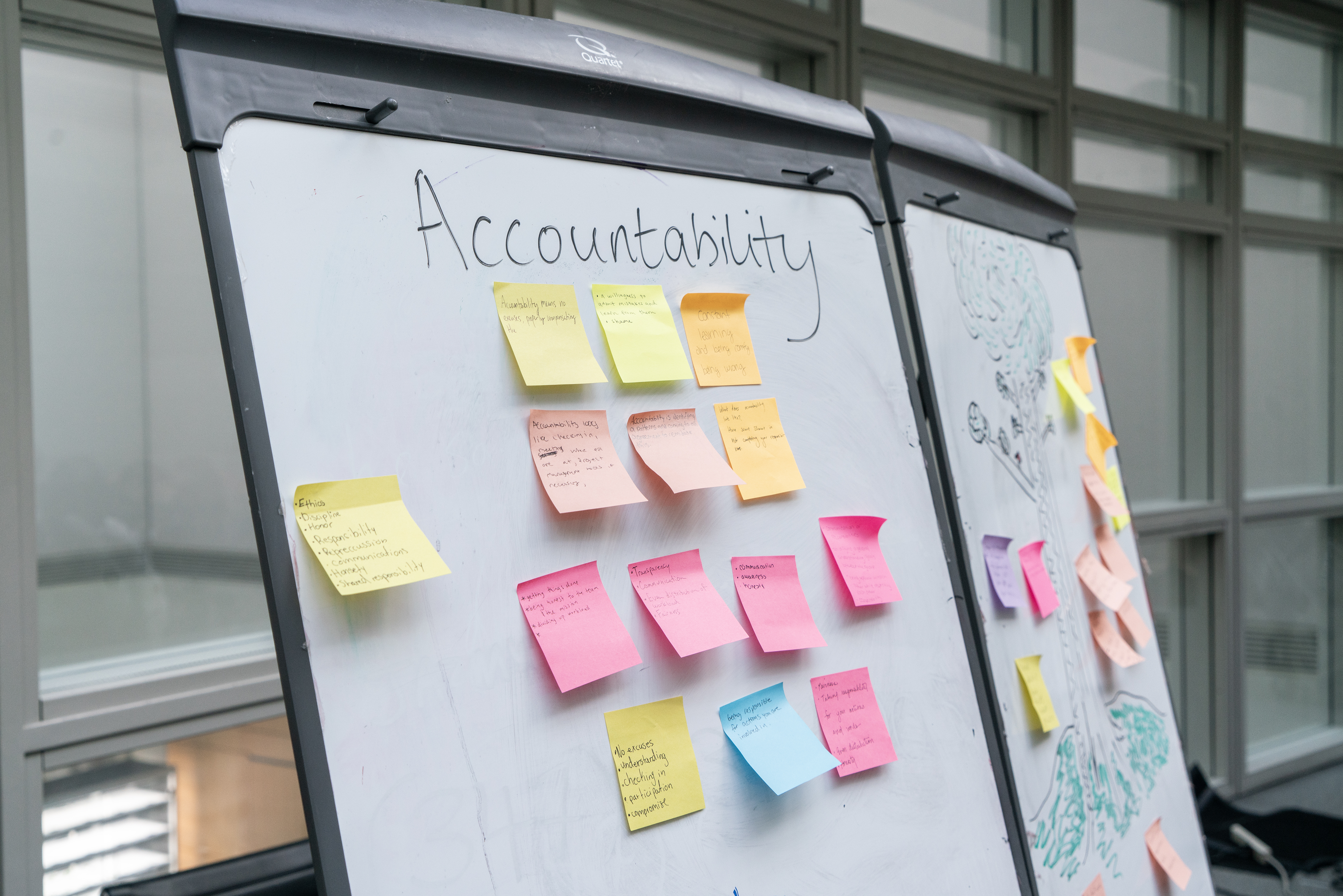
Maithreyi Rajeshkumar, the Hub’s Climate Fellowship Lead, asked students what accountability looks like and why it is essential to hold each other accountable. Students said accountability is the willingness to make mistakes, learn from shame, feel comfortable being wrong, and be upfront while respecting each other. It is essential to hold each other accountable because we practice what we preach; this organization is about justice. Alan Minor, Hub Coordinator, led a reading and reflection activity on the Jemez Principles for Democratic Organizing that guide the Hub's work in climate justice and how a just CUNY would look.
Jazmyn Blackburn, Hub Coordinator, and Forrest Sparks, Hub Project Manager, introduced fellows to how the Hub tracks and monitors progress and how fellows will communicate with each other. Afterward, students broke into four teams to decide their teams' names, objectives, timelines, and outreach strategies.
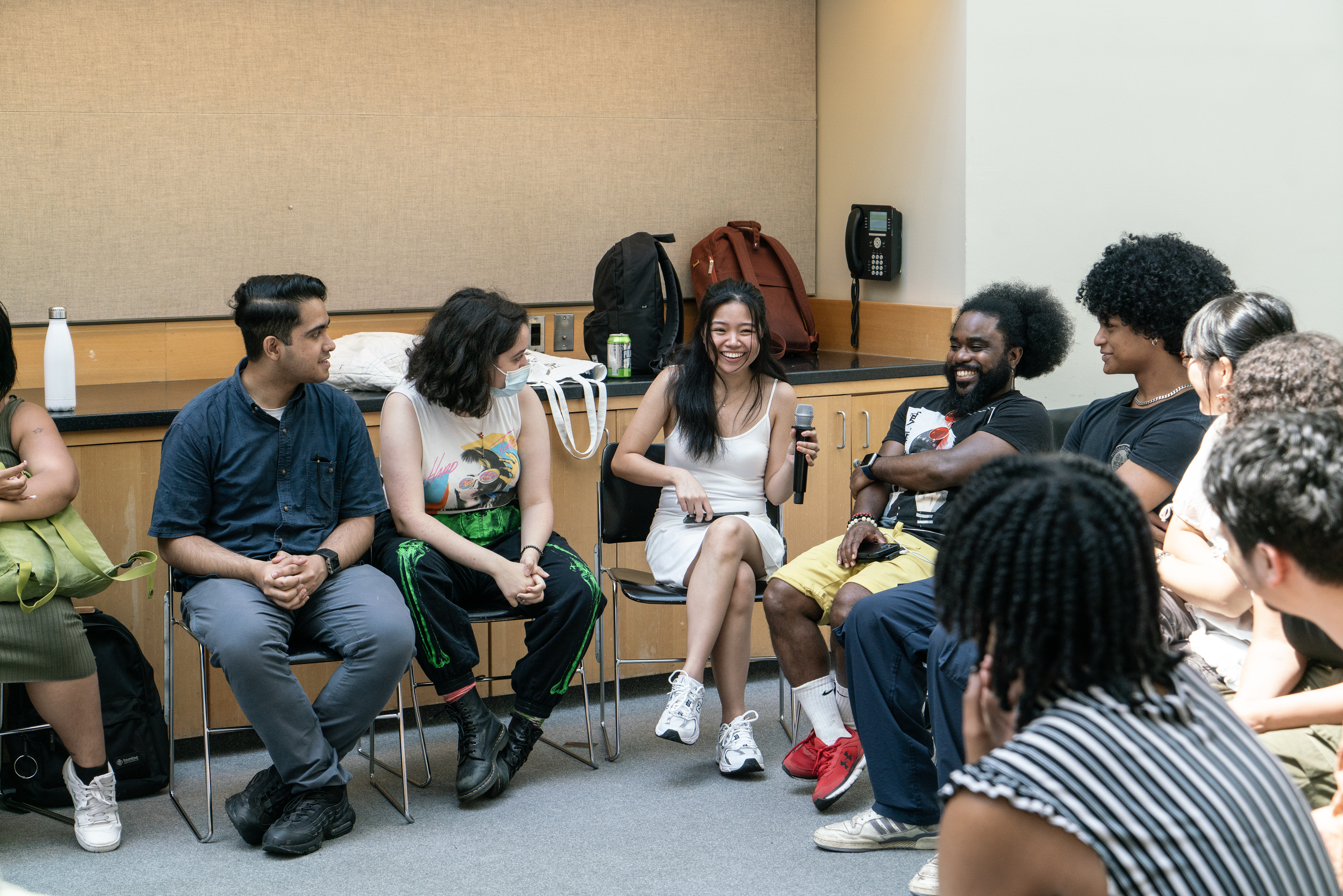
The last session of the day centered on best practices for creating a survey for student landscape data gathering and analysis. The speakers were Shaheeda Smith, Good Old Lower East Side (GOLES) Hub Advocate; Brett Branco, Brooklyn College Associate Professor and Lead for the Hub's Research Team for GOLES; Alan Minor, Hub Coordinator; Eunice Ko, NYC-EJA Co-Director; and Maithreyi Rajeshkumar, Climate Fellowship Lead.
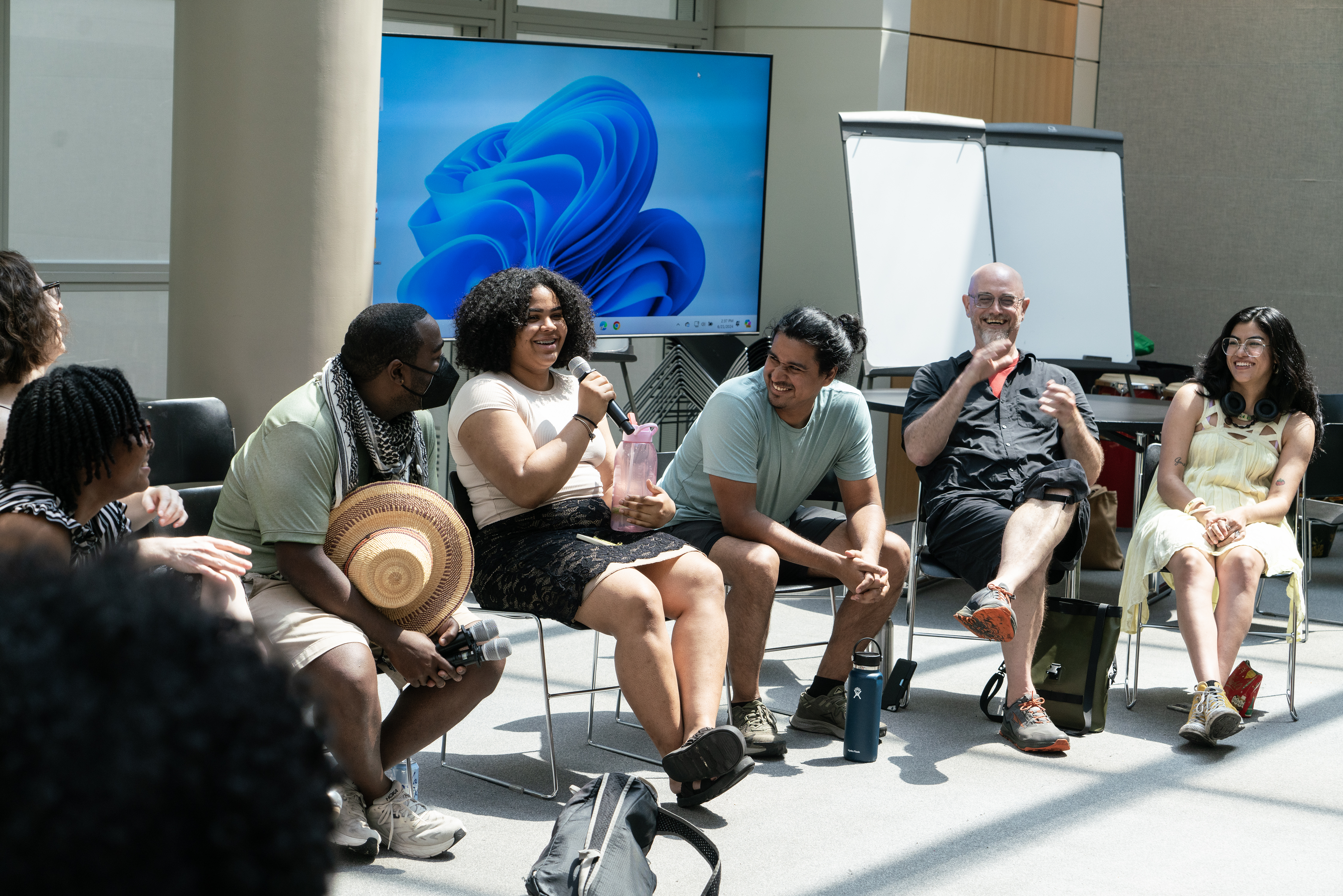
Ko discussed the goals of the surveys and the importance of framing the climate justice issues they want to explore. Minor talked about identifying a target audience, student groups, clubs, centers, and institutes to contact on campus. Smith and Branco highlighted the importance and purpose of surveys in areas like the Lower East Side and how to frame the survey to obtain the right information from stakeholders.
DAY 4
To close the Academy, fellows visited El Puente (Williamsburg, Brooklyn) on Friday. They took a walking tour hosted by El Puente staff: Brooklyn-Queens Expressway Organizer Maria F. Pulido-Velosa and Hub Advocate Adán Guzman, around the Southside, moving onto Continental Army Plaza, La Guardia Playground, the Williamsburg Bridge Plaza Bus Terminal, the Brooklyn-Queens Expressway (BQE), Rodney Park North, and the Middle School 50’s mural an example of how the Los Sures community has used artistic expression in the fight for just transition. The tour ended in El Puente’s Espíritu Tierra Community Garden.
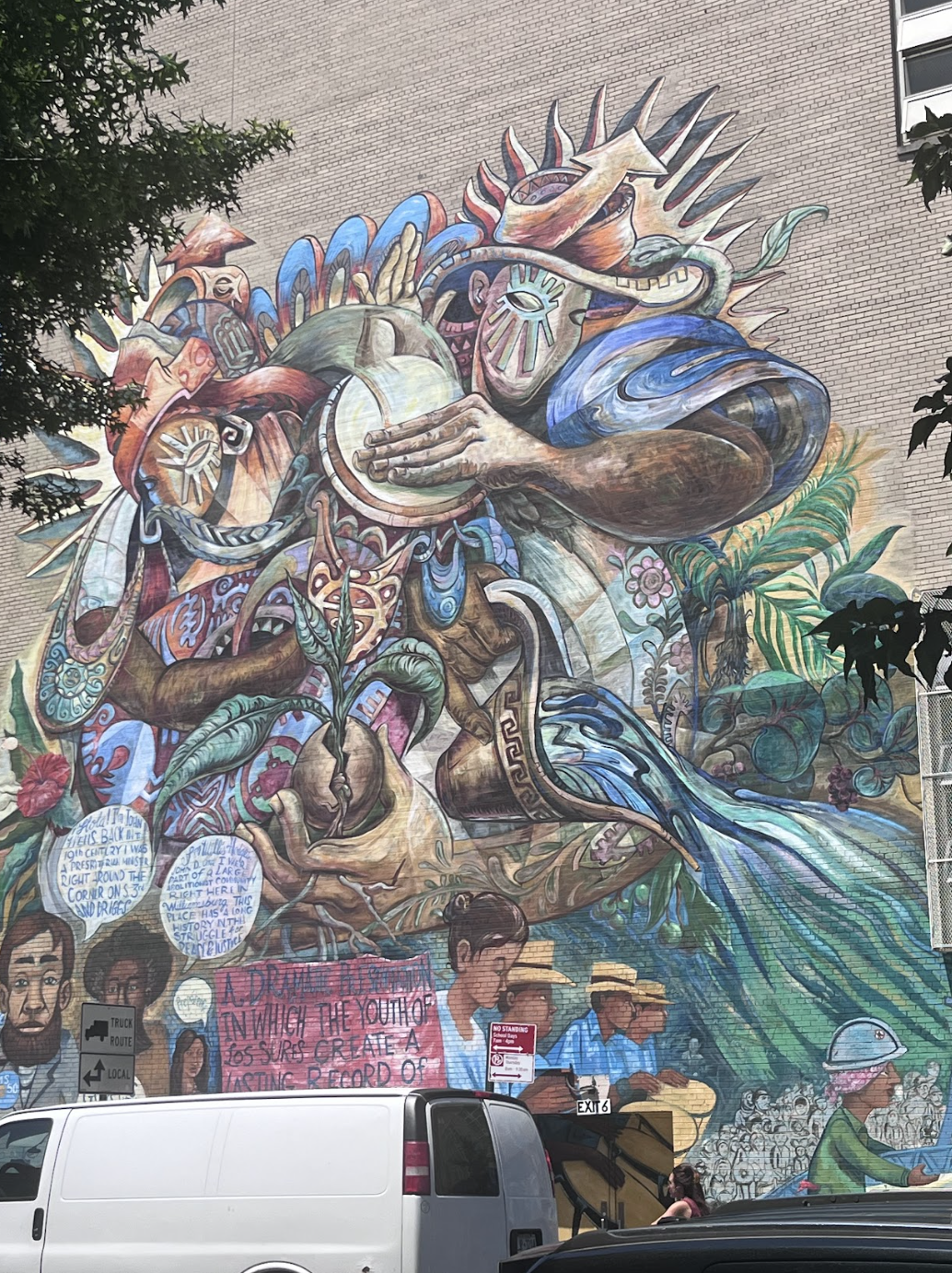
In particular, they noted the presence of the BQE. Fellows and Interns learned about the impacts of the expressway, which attracts trucks, air pollution, and noise to the neighborhood and compromises the health and safety of the community and the greenspace areas around them.
They also learned of El Puente’s response to the impacts of the BQE: the establishment of the Green Light District, their citizen air monitoring initiative “Nuestro Aire,” BQGreen, and the BQE-Environmental Justice Coalition. The BQGreen proposal calls for decking portions of the BQE in the Southside to mitigate exposure to air pollution and noise and create more green space while not contributing to the ongoing displacement of the Southside’s Black, Latinx, and working-class community members.
El Puente is also a co-founding member of the Brooklyn-Queens Expressway Environmental Justice Coalition (BQE-EJC), along with UPROSE and NYC-EJA, which is advocating for a comprehensive, corridor-wide reimagining of the BQE that is guided by environmental and climate justice principles and is led by those most impacted.
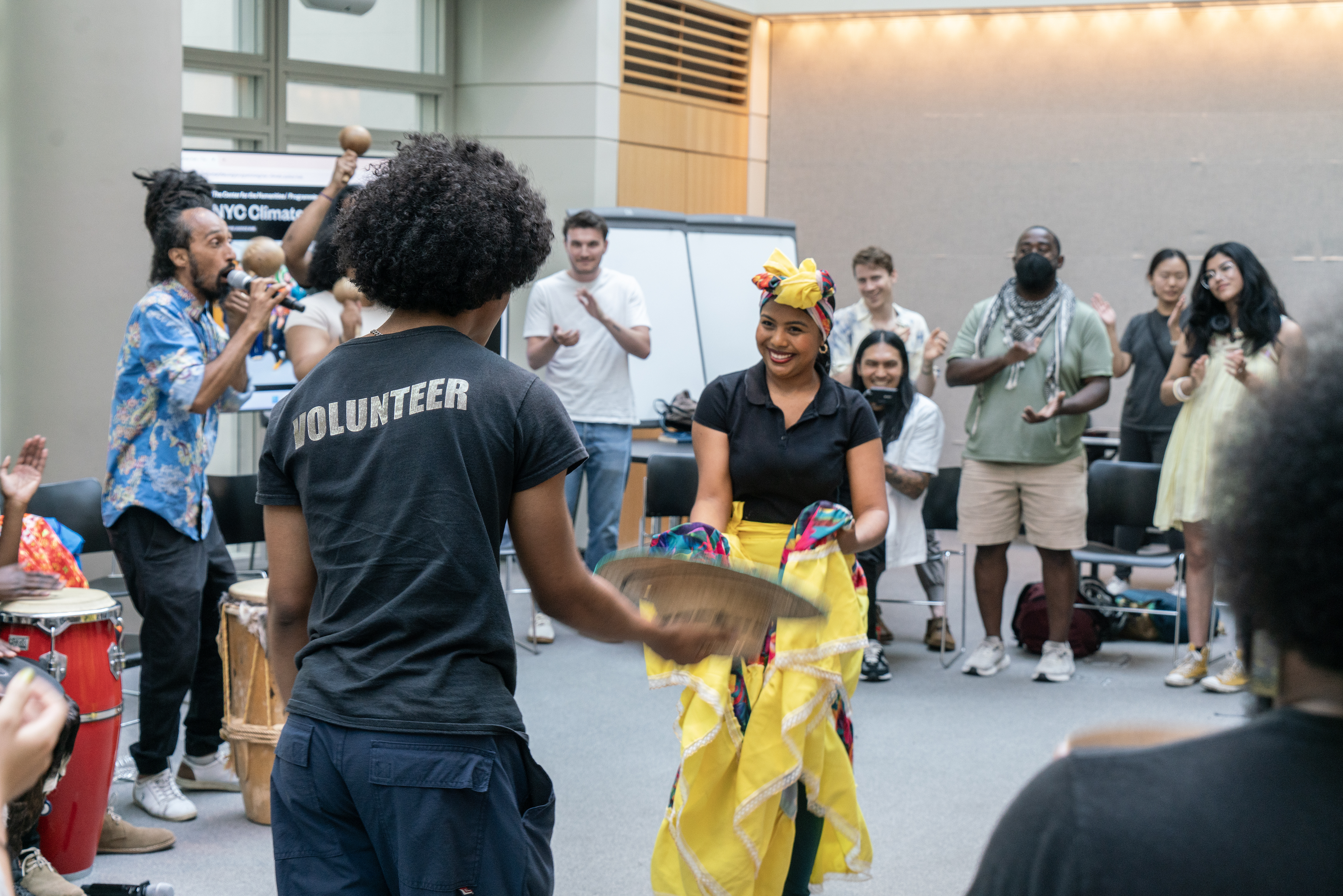
Back at the CUNY Graduate Center, Fellows shared their final thoughts on the Academy, how fear or despair shouldn't stop them from acting, and how students have led important environmental fights throughout history. To conclude, fellows participated in and enjoyed a celebration of Bullerengue, a traditional Afro-Colombian music genre performed by Juan Ospina and his bandmates Moris Cañate and Yamileth Martínez of the group Son Bullerengue.
Throughout the year-long Fellowship program (June 2024 - June 2025), students will receive experiential learning opportunities, and a mentorship program with CUNY faculty. They will be trained in advocacy and community organizing to advance social, environmental, and climate justice, and they will connect with other activists and organizers across CUNY. At the same time, interns will support the work of NYC-EJA member organizations. Under the supervision of CUNY faculty and the leadership of NYC-EJA member organizations, fellows will undertake specific projects related to the Hub’s aims. You will hear more from these climate justice leaders soon!


